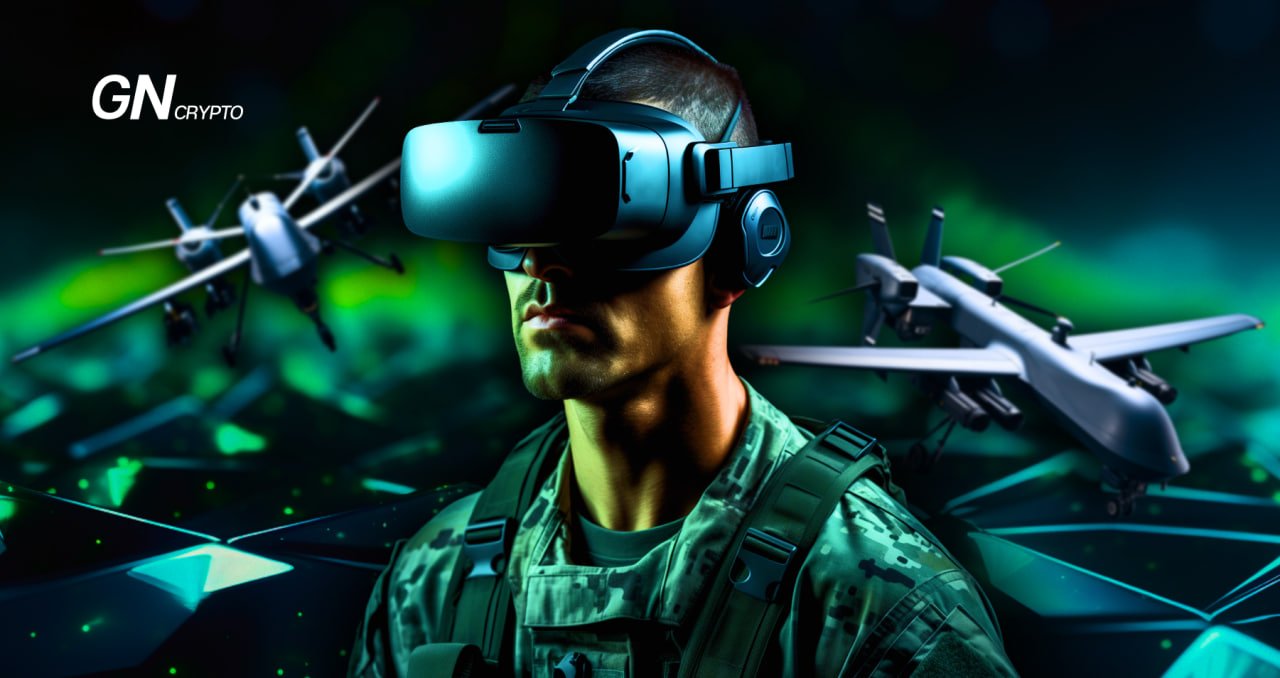How the Military Uses the Metaverse

In the evolving landscape of modern warfare, where technological advancements are increasingly overshadowing traditional manpower, militaries worldwide are turning their gaze towards the metaverse. This concept, which seemed like a far-fetched science fiction scenario just a few years ago, is now becoming a tangible reality.
How Does the Military Use the Metaverse?
The metaverse, a virtual environment blending physical and digital realities, has transcended its original association with gaming and VR enthusiasts to find a new role in military strategy and communications.
Officer Training Simulations
While the metaverse plays a crucial role in military training, traditional camps remain essential. The physical training of soldiers and real-world combat experience are irreplaceable.
Soldiers can engage in realistic scenarios in the metaverse, perfecting their skills on simulated battlefields.
This virtual combat training presents an economically viable alternative to conventional methods. The virtuality of the metaverse enables a tailored approach to equipping soldiers for intricate missions.
The United States Defense Advanced Research Projects Agency (DARPA) is spearheading this initiative. They plan to use the MMOWGLI military game simulator to develop a virtual world system that simulates real-time battlefield conditions. Officers will use special sensors and artificial intelligence to get a three-dimensional view of battles, allowing them to make tactical decisions in real time.
DARPA believes that virtual world interaction will lead to unprecedented coordination among different branches of the armed forces and NATO country partners.
The British Royal Navy has also integrated the metaverse into its training regimen. The virtual environment includes replicas of modern naval bridges, complete with software that can reproduce ports and harbors worldwide in 3D, and simulate complex weather conditions across various latitudes and seasons.
Reconnaissance and Surveillance
Intelligence unit commanders are now utilizing the metaverse to augment their intelligence collection capabilities. The virtual setting offers a platform for simulating covert operations, enabling assault and paratrooper units to familiarize themselves with the terrain and strategize against potential threats beforehand. This leads to more efficient planning and execution of missions, as soldiers can enter the battlefield with an in-depth understanding of the terrain, previously achievable only through physical reconnaissance.
Despite its advantages, the metaverse also presents challenges, particularly in cybersecurity. The military must invest in robust security measures to protect sensitive information and ensure that operational plans remain secure from potential hacking threats.
Remote Weapon Control
American pilots are now trained to operate Unmanned Aerial Vehicles (UAVs) within the metaverse.
A notable example is the MQ-9 Reaper, a UAV employed by the U.S. Air Force for reconnaissance, surveillance, and strike missions.
The visual data captured by the UAV's cameras are streamed and converted into a 3D representation of the terrain below in the virtual environment.
This technology enhances the pilot's ability to control the Reaper effectively and enables the gunner to aim with greater precision.
Medical Training
The U.S. Army has implemented a revolutionary approach in the metaverse by launching a Medical Simulation Training Center (MSTC). This center is a cutting-edge facility where military surgeons and medics refine their expertise. It's not just limited to virtual operating rooms and intensive care units; the center also includes AI-created "battlefields," providing a simulated environment for doctors to practice delivering first aid to digital avatars of actual wounded individuals under extreme conditions.
Additionally, the metaverse is being acknowledged for its unique capabilities in treating Post-Traumatic Stress Disorder (PTSD) by psychiatrists and psychotherapists. It offers a safe space for patients to experience and reprocess traumatic events, an invaluable tool in mental health treatment.Previously, GNcrypto reported on the application of the virtual world by civilian medical professionals.
In summary, the metaverse's incorporation into military affairs represents a significant paradigm shift in how future military operations are conducted. Spanning from training and strategy development to communication and intelligence, the virtual environment provides a comprehensive toolkit. This toolkit allows the armed forces to adeptly address the challenges of contemporary warfare. As technology advances, the military's integration of the metaverse is increasingly becoming a pivotal component in developing defensive and offensive strategies.
Recommended

